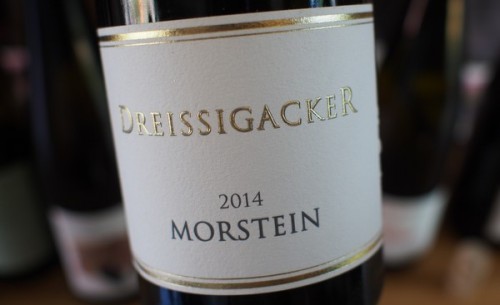
The Rheinhessen is Germany’s largest wine region. With more than 26 000 hectares under vine, it’s responsible for more than a quarter of the country’s vineyard area, although the Pfalz actually makes more wine.
It’s bordered by the Rhine to the north and west as it loops through 90 degrees. To the east there’s the Nahe river, and to the south the Hardt mountains. The best sites have traditionally been those along the Rhine.
It’s a region that in the past hasn’t been associated with high quality wine production, but this is changing. As with so many of Europe’s wine regions, the younger generation are well travelled, and when they bring back new ideas and fresh ways of thinking to their family domains, things begin to change. Also, there’s now a market for more interesting, terroir driven wines from Germany that simply wasn’t there before: if you have a decent patch of land, then the investment required to make high quality wine has a chance of paying off.
Interesting fact: this is where Pinot first landed in Germany. Charlemagne brought the three Pinot varieties to Ingelheim where he had a residence in the 9th century. These vines were first planted in selected sites in the neighbouring Rheingau where people saw that the snow had melted first.
Part of the revolution in the Rheinhessen has been a move towards organics. This tasting, held in the Vinotek in Bingen, was really interesting, because it was looking at a range of wines exclusively from organic producers in the region.
One of the stars of this tasting was the Silvaner variety. 9% of the region is planted to Silvaner these days, and it’s currently the fourth-most planted variety. Some 50 years ago half of the region was planted with Silvaner, but this variety has steadily been replaced, first of all by the likes of Huxelrebe and other high-producing varieties, and then in the 1990s there was a red wine boom where a lot of Dornfelder was planted (currently the third-most planted variety after Riesling and Müller-Thurgau). There are lots of interesting old Silvaner vineyards left in the region and it does really well here. Many wines are labelled Grüner Silvaner (for green, as opposed to the much rarer blue variant). Some spell it Sylvaner, as it is spelled in Alsace. Silvaner is easy in the vineyard but difficult in the cellar, winegrowers say. If a vinter is able to make good Silvaner you can trust the rest of their range. But Sylvaner can’t reach the heady heights of a Grosses Gewachs in the VDP system, which in Rheinhessen only allows this accolade for Riesling and Pinot Noir.
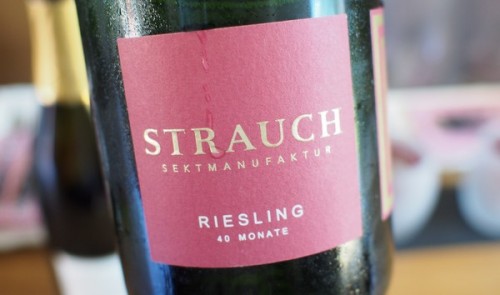
Kurfürst von Dalberg Sektmanufaktur Riesling Sekt Extra Brut 2012 Rheinhessen, Germany
Started just five years ago. Traditional method with long ageing on the lees. Lively, aromatic and focused. Citrussy and intense with good acidity and purity. Has citrussy precision here: lovely detailed, fresh style. 91/100
Sekthaus Raumland Blanc de Noir Prestige Brut 2007 Rheinhessen, Germany
Distinctive herb, cabbage and citrus nose. Some sweet pear notes, too. Powerfu cherry, pear and fig fruity characters. Lovely depth of flavour here with real depth and keen acidity. Some toasty notes, too. Rich. 89/100
Kroenenhof Grüner Silvaner Trocken 2015 Rheinhessen, Germany
Very tight, lemony and fruity with precise citrus and pear fruit. Very clean and fruity with nice acidity and a stony edge to the fruit. It’s not massively fruity but has a concentration of stone and herb characters. Has a lovely finish. 90/100
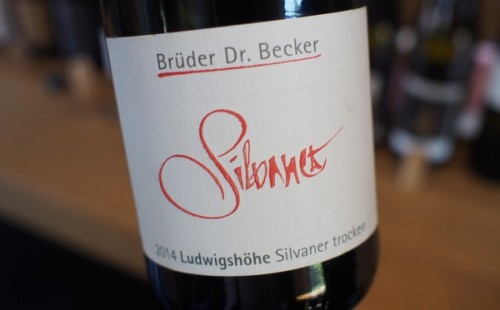
Gebrüder Dr Becker Ludwigshöhe Silvaner Trocken 2014 Rheinhessen, Germany
Dr Becker is one of the pioneers of organic winegrowing in the region. Mineral and stony but also lovely richness with sweet pear, melon and apple fruit. Very textural but still has this lively stony edge and nice mineral core, but this has quite low acidity. 91/100
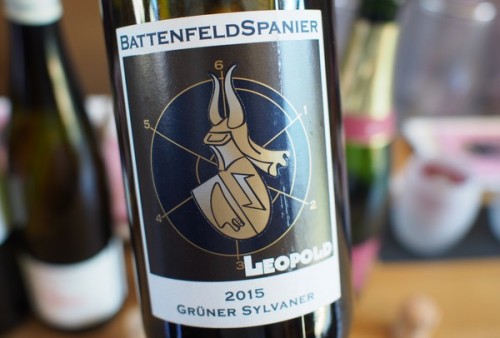
Battenfeld-Spanier Leopold Grüner Sylvaner 2015 Rheinhessen, Germany
Some limestone with some red stones too. Beautiful wine that’s appley, stony and grapey with some citrus notes. Very lively with good acidity and a hint of sweetness. Some smoky, mineral notes, and a lovely finish. Lovely acidity on the finish. Delicious wine. 92/100
Weingut Julius Silvaner Trocken 2015 Rheinhessen, Germany
From the south of the region close to Worms, from a loam/loess soil. Lively and fresh with lovely textured pear and lemon fruit. Has a bit of richness here, with lovely dense, pure fruit and some nice subtle herby notes, as well as some stoniness. Fruity and delightful. 89/100
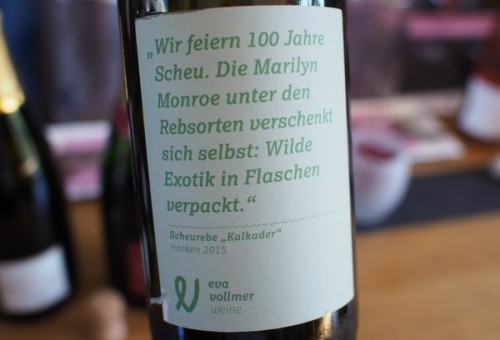
Dr Eva Vollmer Scheurebe Kalkader Trocken 2015 Rheinhessen, Germany
Today 725 ha in Rheinhessen. Became popular because of its resistance for chlorosis in limestone soils. Popular in restaurants. Lively, spritzy, talcum-edged citrus fruit with some spiciness. Linear and dry with a lovely bright fruity quality. Juicy with a bit of fruit sweetness. Very approachable. 88/100
Weinreich Stein Weissburgunder Trocken 2014 Rheinhessen, Germany
Textured and broad with lovely richness and melon and pear with some spiciness. Richly textured and generous with broad fruit flavours. Nice wine. 89/100
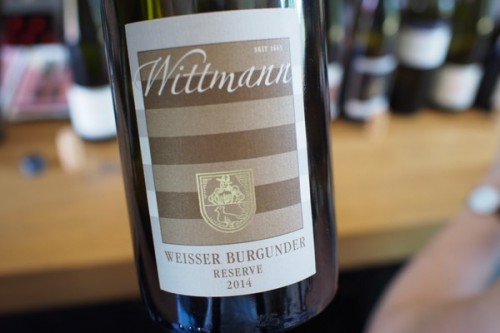
Wittmann Weisserburgunder Trocken Reserve 2014 Rheinhessen, Germany
Lovely citrus and pear fruit here with some marmalade and spice. Has some melony richness countered by nice citrussy acidity. A bit creamy with lovely depth and some grape character. Serious Pinot Blanc. 92/100
Dreissigacker Morstein Riesling Trocken 2014 Rheinhessen, Germany
13% alcohol, bone dry. Has 30% cask fermentation, plus some skin contact. Pure limestone here. Lively, textured citrus fruit with some ripe apple and pear. Complex and intense with a lovely mineral character and fine spiciness. So pure and intense with some real complexity and good acidity. 94/100
Gysler Riesling Klangwerk Vum Helle Trocken 2014 Rheinhessen, Germany
Red sandstone soil. 8 g/l residual sugar and acidity. Amazing acidity here – precise and pure with lovely citrus fruits but also a bit of melon and honey detail and richness. Some marmalade notes, too. Very fine and expressive with real complexity. 93/100
Sander Riesling Mettenheimer Schlossberg Trocken 2014 Rheinhessen, Germany
A pioneer of organic winegrowing in Germany. Loess soils, which tend to make fruitier wines for earlier drinking. Powerful and rounded with lovely baked apple and lemon fruit. Textured and generous with some acidity but also broad pear and apple with a hint of nuts and fennel. 89/100
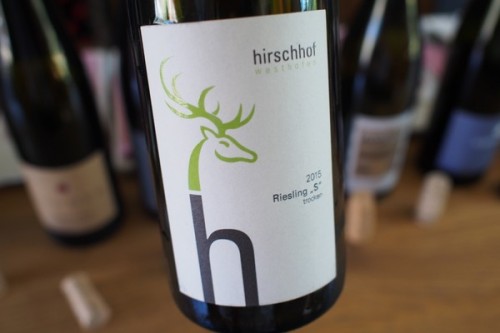
Hirschoff Riesling ‘S’ Westhofener Aulerde Trocken 2015 Rheinhessen, Germany
Clay soils. There’s a hint of bacon savouriness with nicely rounded pear and citrus fruit, as well as a bit of sweetness on the finish. There’s an attractive acid core to this wine, which finishes quite mineral. Lovely long acidic finish. 91/100
Arndt F Werner Blauer Spätburgunder Ingelheimer Burgberg Trocken 2013 Rheinhessen, Germany
Cherries and herbs with a hint of cola and some green-tinged undergrowth notes. Lively, tangy acidity here. Warm, spicy and a bit jammy with very sweet fruit. 86/100
Runkel Spätburgunder Trocken 2011 Rheinhessen, Germany
From the south of the region. Aromatic with spices, cherries and herbs. Nice rich texture with some herbiness and a bit of tang on the finish. Vivid, spicy and quite herby with supple sweet cherry and strawberry fruit. 88/100
Find these wines with wine-searcher.com
Leave a Comment on A tasting of organic wines from the Rheinhessen, Germany